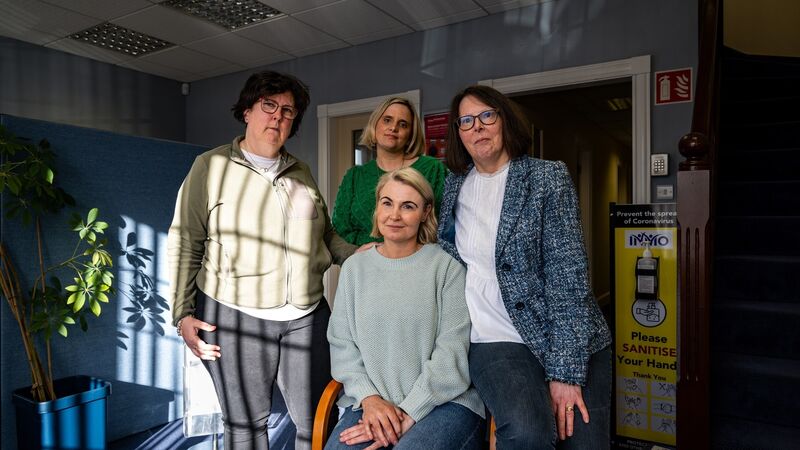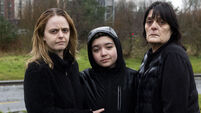'We’re damaged goods': Out-of-work nurses explain what it's like to live with long covid

(Left to right) Nurses Noreen Lucey, Fiona Walsh, Helen Hypolite and Olivia Barry in the INMO centre in Cork where they talk about their experiences working in hospitals during the covid pandemic. Picture: Chani Anderson
When Helen Hypolite got covid-19, the Cork woman was terrified by the symptoms, including struggling to write and speak in the weeks and months that followed.
Today, many would spot this as brain fog from long covid, but five years ago, this condition was unknown. Indeed, a clinical definition of over 200 symptoms was only agreed by the World Health Organisation in late 2021.














